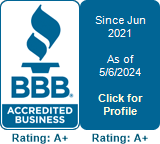Addressing common concerns and misconceptions is an important step when considering the option of at-home recovery. Many may question the effectiveness of such treatments, worried that without the structured environment of a treatment facility, the chances of successful recovery may diminish.
However, patients with a chronic alcohol use disorder can reach their recovery goals successfully with the proper support system in place—consisting of healthcare professionals, loved ones, and peer support resources. Remember that:
- At-home treatment is not an “easier” option—it still requires dedication and active participation in the recovery process. Instead, it’s often a more realistic approach for certain individuals.
- Professional oversight is a critical part of at-home care, ensuring that the person in recovery from alcohol addiction receives medical and therapeutic support.
- At-home treatment plans are customizable and can be even more comprehensive than those offered in traditional recovery settings.
To anyone considering at-home treatment for alcohol abuse, know that you are not alone. Many have found hope and healing on this path, and with the proper support and resources, it may be the starting point for a life free from addiction.











